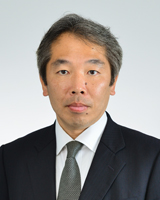Materiality (Important Issues)
Yokohama Rubber created its list of materiality in 2014 through internal discussion, with stakeholder inputs taken into consideration. The materiality was reviewed in 2017 and then in 2020 to reflect environmental changes and other newly emerged factors. We are now reviewing our materiality again in connection with the making of our next medium-term management plan, taking into consideration new changes in the social environment and in other important aspects.
Move the screen to the left or right to see the table information
| Materiality (Important Issues) |
Issues to Be Recognized |
Products
 |
Deliver fun and peace of mind.
  |
- The spread of CASE*1 and MaaS*2 in the automotive industry
- Innovation through the utilization of technology
- Increasingly diverse customer needs (cost, performance, quality, environmental and social contributions)
- The safety and security of customers
- 1 CASE:An acronym for Connected, Autonomous, Shared & Services, and Electric
- 2 MaaS:Mobility as a Service. A new concept of integrating various types of transportation services into one and providing them to users
|
The Earth
 |
Leave a sound environment to future generations.
     |
- Climate change issues
- Achieving carbon neutrality
- Promoting a circular economy
- Preserving biodiversity
- Sustainable use and management of natural resources
- Prevention of pollution and chemical substance management
|
People
 |
Build on each other’s strengths.
    |
- Respect for human rights
- Diversity & inclusion
- Workstyle reforms
- Human resources development
- Occupational health and safety
|
Community
 |
Earn the confidence of our neighbors.
     |
- Regional environmental issues, such as water and air pollution, and environmental destruction
- Regional social issues such as respecting the land rights of indigenous peoples, human rights violations, disasters, healthcare, trading irregularities and conflict minerals
- Revitalizing local communities, creating economic effects
- Communication with local communities
|
Corporate Governance
 |
Lay a solid foundation for fulfilling social expectations.
   |
- Maintenance and strengthening of foundation for proper organizational governance
- Sustainable improvement of corporate value
- Effectiveness and diversity of meeting bodies such as the Board of Directors and committees
- Dialogue with stakeholders and disclosures
|
How our materiality list was created
The Global Reporting Initiative (GRI), an international NGO that formulates and issues international guidelines for corporate sustainability reporting, released its newly revised GRI Guidelines Version 4 (G4) in May 2013. The G4 requires organizations to practice “information disclosure focusing on its materiality”, which is significantly different from the previous version that simply required the organization to provide “exhaustive information disclosure.” G4 is intended to ensure that the corporate executives will be responsible for defining the scope of information to be included in their CSR reporting, as part of their active involvement in the CSR efforts by their organization. To align with the G4, we created the list of "Yokohama Rubber’s materiality" in 2014 in the following steps:
STEP1. Analysis to identify G4 gaps
We reviewed our current information disclosure practice in "CSR Report 2013" and compared it with the G4 requirements to identify which of the requirements are satisfied by us and which requirements necessitate our improvement. (Implemented January 2014)
STEP2. Internal discussion to define the priority order of materiality
Further analysis was conducted taking into consideration the characteristics specific our industry, lines of business as well as geographical regions. Based on analysis findings and through discussion with various teams and departments in the organization, we defined the priority order of our CSR materiality. (Implemented from January to February 2014)
An example of the evaluation we conducted
"Supplier evaluation from environmental perspective": For Yokohama Rubber, a company that procures natural rubber as a raw material, it is important to consider environmental risks including deforestation or illegal logging as well as potential human right violation risks including forced or child labor that might be practiced in upstream parts of the supplier chain outside our direct scope of operation. Considering our wide-ranging business activities conducted in developed and developing countries and various regions, our supply chain could easily be exposed to such environmental and human right risks. As we discussed such risks with various teams in the organization, we determined that "supplier evaluation from environmental perspective" is one of the most critical CSR issues, therefore a "materiality", that the company must deal with. Including these and other risks, we have committee bodies that work on specific areas of CSR commitment, including the Environmental Promotion Council, the Central Safety and Health Committee, the Central Disaster Prevention Council and the Corporate Compliance Committee. These committees plan and implement detailed CSR plans and programs. In addition, these committees collaborate with the Risk Management Committee to work on the most critical and urgent CSR issues that we have at the time.
STEP3. Reflecting outside perspectives in the priority order of materiality
We interviewed five stakeholders outside the organization about what are the most critical CSR issues. Based on findings from these interviews, we reviewed and refined the priority order of our materiality so as to better reflect the perspectives outside the organization. (Implemented from February to March, 2014; Organizational titles shown are the ones from the time of the interviews)
Ms. Mariko Kawaguchi
Chief Researcher Research Division, Daiwa Institute of Research Ltd.
Ms. Kawaguchi has advised countless corporations on how to achieve a sustainable society from the perspective of corporate social responsibilities (CSR) and socially responsible investments (SRI).
I would like to draw attention to anti-corruption, in addition to those other important issues of human rights, diversity, equal pay, complaint processing systems, and the protection of customer’s privacy. There is no dedicated government ministry in Japan that covers anti-corruption matters, and other countries pay much more attention to the issue of anti-corruption than we do in Japan. The UN Global Compact even has an independent provision on the issue. With globalization advancing today anti-corruption has become an even more important issue, and companies need to have a clear policy on anti-corruption and response measures in place.
Mr. Kenichi Kumagai
Member of the Editorial and Planning Committee, The Japan Association for Advancement of ILO Activities
Member of the International Drafting Committee Mr. Kumagai is actively involved in domestic and international deliberations on ISO26000 through its involvement as member of various committees. He is also a member of the Japan Labor Law Association.
Today, companies need to understand what parts of occupational safety and health and labor relations that society as a whole has an interest in and disclose information as necessary. For example, there is a strong interest in mental health initiatives among all companies. By disclosing that labor-management consultations have been carried out continuously, Yokohama Rubber will be able to correctly convey that it respects the rights of workers when expanding overseas. Additionally, the proactive appointment of female board members will be essential as Yokohama Rubber steps up its global expansion in the future.
Ms. Kaori Kuroda
Executive Director CSO Network Japan
Ms. Kuroda is an expert in community involvement and development. She established a regional forum with farmers and other community members in Fukushima Prefecture that is broadening exchange with other parts of Asia.
Today, a company should integrate social responsibility throughout the company and practice it in its value chain. For example, in areas that produce raw materials, such as rubber plantations, a company needs to pay a great deal of attention to human rights risks it may be susceptible to. A company must also convey that it has established a proper grievance mechanism for its own use and of its stakeholders. A company must be much more sensitive about human rights issues when expanding its operation globally.
Mr. Masao Seki
Associate Professor, School of Business Administration, Meiji University Senior Adviser on CSR, Sompo Japan Insurance Inc.
Mr. Seki was involved in the creation of ISO26000 as a representative of Japanese business. He also participates in various discussions on the topic of sustainable development at various international conferences.
An important perspective to keep in mind when expanding business operations into various regions is the extent to which the company contributes to local employment. Contributions to employment represent a topic of strong interest both in Japan and abroad and companies should be well aware of this. Additionally, educating consumers about sustainable consumption is another topic that must be remembered when aiming to realize a sustainable society. For example, Yokohama Rubber should tackle the challenge of communicating enhancements in its brand by appealing to consumers about its consideration of ecosystems and other matters.
Mr. Keisuke Takegahara
General Manager Environmental Initiative & Corporate Social Responsibility Support Department Development Bank of Japan Inc.
Mr. Takegahara lived in Frankfurt, Germany for a total of six years and is known as one of Japan’s foremost experts in environmental finance, having development the Development Bank of Japan’s environmental loan rating system.
In identifying important issues, a company needs to consider not only the unique characteristics of its location, but also the time frame. For example, a company may be aware of the regional risks and in control of these risks at the present time, but once the weight of emerging markets increases over the medium to long term, the risks that are currently under control could grow into much larger ones. In that sense, I would like Yokohama Rubber to get the message out about both its current issues and management reporting as well as its medium- to long-term vision and awareness of issues.
STEP4. Finalization of materiality
Based on findings from the analyses, studies and discussions conduced on Steps 2 and 3, the following Yokohama Rubber’s materiality were finalized in 2014:
- Words in square brackets ([ ]) are the new descriptions of the respective materiality adopted in the current GRI Standard.
Move the screen to the left or right to see the table information
| Global environment |
We challenge to build a sustainable society in harmony with the environment, to protect our blue planet and human beings. |
- Materials
- Energy
- Water
- Biodiversity
- Emissions
- Products and services
- Environmental grievance mechanisms [Environmental management approach]
|
| Customers |
We supply safe and secure products through manufacturing focused on the heart and technology. |
- Customer health and safety
- Product and service labeling [Marketing and labeling]
- Marketing communications [Marketing and labeling]
- Compliance (Product liability) [Customer health and safety ]
|
| Local communities |
We build a trusted identity as a contributing member of the global community by making contributions to the development and prosperity of local communities. |
- Market presence [Market Presence]
- Local communities
- Grievance mechanisms for impacts on society [Management approach related to fair business practices]
|
| Employees |
We value and develop our people, and create opportunities for people. |
- Occupational health and safety
- Training and education [Training and education]
- Diversity and equal opportunities [Diversity and equal opportunities]
- Human rights grievance mechanisms [Management approach related to human rights]
|
| Shareholders and investors |
We improve our company value by growing business opportunities. |
- Economic performance [Economic performance]
|
| Business partners and suppliers |
We promote CSR activities throughout the value chain. |
- Supplier human rights assessment [Supplier social assessment]
- Supplier assessment for impacts on society [Supplier social assessment]
- Supplier environmental assessment [Supplier environmental assessment]
- Supplier assessment for labor practices [Supplier social assessment]
- Child labor
- Forced or compulsory labor
|
Mr. Hiroki Uchida, Senior Researcher, Cre-en Incorporated
We have supported Steps 1 through 4 from in preparation for G4 support. While we will implement management in line with self-set KPIs going forward, we hope to achieve certain spiraling up through the PDCA cycle and continue well-balanced CSR initiatives without becoming overly satisfied with what has been achieved. In doing so, we would like to create examples of initiatives unique to Yokohama Rubber in the areas selected for materiality through cross-company management and communicate these cases through information disclosure. In addition, by also continuing the initiatives up until now while conducting timely information disclosure in the areas selected for materiality, we aim to steadily improve the level of activities overall.

































